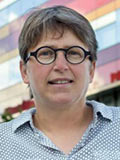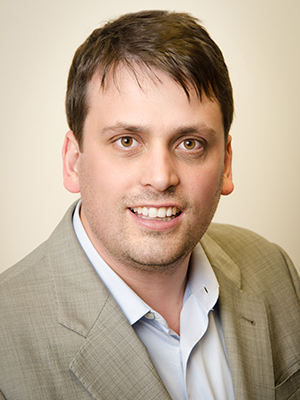CIHR HIV/AIDS and STBBI Research Advisory Committee (CHASRAC) – Biographies
 Vera Caine (Chair)
Vera Caine (Chair)
Professor, School of Nursing
University of Victoria
 Adrian Mota (Ex-Officio)
Adrian Mota (Ex-Officio)
Acting Vice-President, Research – Programs
CIHR
Adrian Mota is the Acting Vice-President, Research – Programs, at the Canadian Institutes of Health Research (CIHR). In this role, he is responsible for ensuring that CIHR supports and advances the highest international standards of excellence in health research. A strong proponent of continuous improvement, Adrian encourages his teams to take evidence-based approaches to the development, enhancement, and implementation of CIHR’s funding opportunities and peer review process.
Prior to joining CIHR’s Executive Management Committee, Adrian was the Director General of the Operations Support branch, where he was responsible for CIHR’s applicant and grant holder support services. These included CIHR’s Contact Centre, applicant support platforms, funding opportunity quality assurance, grants and awards policies, post-funding administration, and data management systems.
Adrian first joined CIHR in 2005 and has held a variety of positions within the agency, including Acting Director of Knowledge Translation and Manager of Business Implementation. In the latter role, he led the design and implementation of large-scale reforms of CIHR's open funding competitions and peer review processes. He also led the development of new business systems aimed at strengthening CIHR’s programs and policies.
Adept at both carpentry and automotive mechanics, Adrian began his professional career in the construction industry and is the proud owner of a 2001 Harley-Davidson Sportster and a completely rebuilt 1956 Triumph TRW.
Adrian holds a Bachelor of Science in Biochemistry from the University of Ottawa.
 Albert Beck
Albert Beck
Director, Sixties Scoop, Manitoba Métis Federation and Indigenous Fellowship Programme
United Nations Office of the High Commissioner for Human Rights, Geneva, Switzerland
An Indigenous Person Living with HIV/AIDS, Albert has worked to advance HIV health, social policy development, and human rights for over 26 years, including serving on the former Public Health Agency’s National Aboriginal Council on HIV/AIDS, the Standing Committee on Justice and Human Rights, and as an AIDS2020 Community and Leadership Program Committee Member. Albert is a past Chair and President of the Ontario Aboriginal HIV/AIDS Strategy. In 2017, he became the first Metis citizen to participate in the UN OHCHR Indigenous Fellowship Program in Geneva, Switzerland. In 2016, Albert was awarded the CAAN HIV Exceptional Leadership Award. Albert is a citizen of the Red River Métis and is employed as a Director with the Manitoba Métis Federation in Winnipeg, MB.
 Nicolas Chomont
Nicolas Chomont
Associate Professor
Department of Microbiology and Immunology
University of Montreal
CHUM Research Centre
Dr. Nicolas Chomont is an Associate professor in the Department of Microbiology and Immunology at the Université de Montréal – CHUM Research Centre. He obtained his PhD in medical virology at Pierre et Marie Curie University in Paris where he studied the interactions between HIV and the genital mucosa. From 2004 to 2009, he joined the Université de Montréal for his post-doctoral training. During this time, he described subsets of memory CD4 T cells that contribute to the persistence of HIV in individuals receiving antiretroviral therapy. He pursued his research as a principal investigator at the Vaccine & Gene Therapy Institute of Florida to characterize these reservoirs. Since 2015, at the Université de Montréal, Dr. Chomont is overseeing studies to unravel the molecular mechanisms involved in HIV latency and to develop novel therapeutic strategies aimed at eradicating HIV. His work focuses on the immunological mechanisms that are involved in the persistence of HIV infected cells, and particularly on the role of T cell proliferation in that process.
 Jimmy D. Dikeakos
Jimmy D. Dikeakos
Professor and Chair of the Graduate Committee
Faculty Scholar
Department of Microbiology and Immunology
Western University
Dr. Jimmy D. Dikeakos is a Professor (with Tenure) and Chair of the Graduate Program in the Department of Microbiology and Immunology at Western University within the Schulich School of Medicine of Dentistry. Dr. Dikeakos is Past-President of the Canadian Society for Virology.
He obtained a PhD in Biochemistry from the University of Montreal and received PostDoctoral training in HIV Pathogenesis at the Vollum Institute in Portland. In 2012, he joined the Faculty at Western where he directs a laboratory focused on diverse membrane trafficking pathways in both infected and non-infected cells. His research program is primarily focused on the HIV-1 accessory proteins Nef and Vpu. In the last two years, Dr. Dikeakos has also shifted his research interests to study SARS-CoV-2. In 2019, Dr. Dikeakos received the Dean’s Award of Excellence from the Schulich School of Medicine for his achievements. In 2022, was awarded the “Faculty Scholar” title by the Office of the President at Western for the 2022-2024 period.
 Francisco Ibáñez-Carrasco
Francisco Ibáñez-Carrasco
Assistant Professor, Learning Innovation
Dalla Lana School of Public Health
University of Toronto
Francisco Ibáñez-Carrasco PhD is an assistant professor at the Dalla Lana School of Public Health, University of Toronto, a member of The Canada-International HIV and Rehabilitation Research Collaborative (CIHRRC). His research focuses on physical and cognitive rehabilitation in the context of HIV, queer men’s sexual health, eLearning for public health, participatory knowledge mobilization, HIV stigma, and autopathography (patient-oriented medical narratives). He is he author of Latinx fiction and nonfiction related to living with HIV. Francisco has been living with HIV since 1986.
 Charu Kaushic (Ex-Officio)
Charu Kaushic (Ex-Officio)
Scientific Director
Institute of Infection and Immunity
Canadian Institutes of Health Research
Dr. Kaushic is a full Professor in the Department of Pathology and Molecular Medicine at McMaster University. She is a member of the McMaster Immunology Research Centre (MIRC) and the Michael De Groote Institute of Infectious Disease Research (IIDR) and an Associate Faculty in Department of Obstetrics and Gynaecology and Department of Biochemistry and Biomedical Sciences.
Dr. Kaushic obtained her PhD at National Institute of Immunology in New Delhi, India followed by post-doctoral work in the area of mucosal immunity at Dartmouth Medical School. She joined McMaster University in 2002, where she has done extensive teaching and training and built an interdisciplinary research program. Her research interest is women's reproductive health, specifically basic, clinical and translational research examining susceptibility and immune responses to sexually transmitted viruses, HIV-1 and HSV-2. Charu has special interest in public education, especially on women's reproductive health issues and has long term collaborations with community research organizations.
Dr. Kaushic's research has been funded by CIHR, CFI, CANFAR and OHTN. Charu has received numerous national and international awards including a Rockefeller post-doctoral fellowship, CIHR New Investigator Award, OHTN Research Scholar award, OHTN Applied HIV Research Chair award and recently an American Journal of Reproductive Immunology Research Excellence Award. She has served on a number of scientific panels including CIHR, NIH and is a member of CIHR College of Reviewers, was a research representative on OHTN Board of Directors and Secretary of the American Society of Reproductive Immunology.
 Raynell Lang
Raynell Lang
Assistant Professor
Division of Infectious Disease
Departments of Medicine & Community Health Sciences
University of Calgary
Dr. Raynell Lang is an Assistant Professor in Infectious Diseases at the University of Calgary and is a member of the O’Brien Institute of Public Health and Snyder Institute of Chronic Diseases. She specializes in providing care for people living with HIV and is the Assistant Medical Director of the Southern Alberta Clinic in Calgary, Alberta. Dr. Lang received her MD from the University of Saskatchewan and completed her training in Infectious Disease through the University of Calgary. She received a Masters in Epidemiology from London School of Hygiene and Tropical Medicine and a certificate in research methodology (Global Clinical Scholars Research Training Program) through Harvard University. She completed a post-doctoral fellowship in HIV Epidemiology at Johns Hopkins University with the North American AIDS Cohort Collaboration on Research and Design (NA-ACCORD). Dr. Lang’s research involves evaluating the impact of coinfections and comorbidities among people with HIV, characterizing immunity, inflammation and virologic associations, and identifying markers with predictive capacity to inform clinical care.
 Daryl Luster
Daryl Luster
Board Chair, BC Hepatitis Network
Daryl is a person who has lived experience with HCV.
As a person who spent the bulk of his working career in the design business sector, he continues to enjoy creative endeavours. He has travelled and worked extensively in Canada and other countries, seeking to bring people closer together in common goals with a focus on social justice and equity since childhood, as the youngest of social justice and human rights activist parents.
His work as an HCV patient advocate and educator has been centred around shedding more light and improved understanding on the HCV experience with the people affected, researchers, clinicians, care givers, legislators, public Health agencies, industry, and the general population.
As we know with new treatments, a cure is possible now for the vast majority of HCV patients. An area of keen interest is in the study of extra hepatic manifestations associated with HCV.
As someone who was himself living with HCV, he has a keen insight into what the patient experience can be like and has in-community contact with others affected across all populations in a way that is unique to lived experience.
He advocates for a greater commitment on the part of research, public health, payers of treatment whether public or private. He speaks with patients regularly, and it is their voice that drives him in his work.
Some current activities include:
- President-Pacific Hepatitis C Network
- Member-CanHepC Network
- Member PAC UBC Health
- Peer Navigator Help 4 Hep Helpline, Canada and USA
- Educator and Advisor
- Writer/Blogger
 Carrie Martin
Carrie Martin
Co-founder and Executive Director of the Indigenous Health Centre of Tiohtià:ke
Carrie Martin is an Indigenous PhD candidate and the Co-founder and Executive Director of the Indigenous Health Centre of Tiohtià:ke. Her work involves leading strength-based, culturally grounded, community-based research for the wellbeing of Indigenous women living with/at risk of HIV. Informed by decades of front-line work, Carrie has been involved in numerous research projects in various capacities. Currently, she is the NPKU on a $3,469,000 CIHR grant entitled Measuring Sexual and Reproductive Health and Rights (SRHR): Responding to the Needs of Indigenous Women and Girls in a Global Context, taking place in seven countries over five years. Read more about her current research by visiting the kʷiisḥinčiƛ Transformation Project website.
Carrie launched a medical clinic at the Native Women’s Shelter of Montreal, and in 2008 co-founded the Indigenous Health Centre of Tio’tia:ke. She strives to be inclusive of all Indigenous women (cis and trans-women, genderqueer and femme-identifying folks) and to create a more equitable world for women living with sexually transmitted and blood borne infections.
In 2016 Carrie was a Civil Society Member of the Canadian Delegation at the United Nations High Level Meeting on HIV. And since 2015, she has been a member of the CIHR Canadian HIV Trials Network’s Community Advisory Committee reviewing clinical trials to ensure they are safe, ethical, and relevant to the HIV community. Carrie is a tireless champion for Indigenous women living with HIV, and a powerhouse in Indigenous academic research building much-needed capacity in the Indigenous community for grant and research development.
 Lyle Mckinnon
Lyle Mckinnon
Associate Professor
Medical Microbiology and Infectious Diseases
University of Manitoba
Lyle is an Associate Professor of Medical Microbiology and Infectious Diseases at the University of Manitoba. His lab was established in 2016 with a focus on mucosal immunology and sexually transmitted infection transmission and pathogenesis. Prior to this, he worked in Kenya and South Africa for >10 years and continues to collaborate on cohort studies there and in Uganda and Thailand. Current ongoing studies include understanding T-cell regulation of inflammation at mucosal surfaces in the context of HIV transmission, HPV clearance, and treatment of gonorrhea and chlamydia. This work is done in close partnerships with key populations impacted by these infections, including sex workers, men who have sex with men, and adolescent girls and young women. He has published >125 peer-reviewed articles and received funding from Canadian Institutes of Health Research, the Bill and Melinda Gates Foundation, the National Institutes of Health and others.
 Gina Ogilvie
Gina Ogilvie
Canada Research Chair, Global Control of HPV related diseases and Cancer
Professor
Faculty of Medicine
University of British Columbia
Gina Ogilvie, MD MSc FCFP DrPH is a Tier 1 Canada Research Chair in Global Control of HPV related diseases and prevention, and Professor at the University of British Columbia in the School of Population and Public Health. She is also Senior Public Health Scientist at BC Centre for Disease Control and Senior Research Advisor at the BC Women’s Hospital and Health Centre. She was previously Medical Director of Clinical Prevention Services at BC Centre for Disease Control where she provided both operational and scientific leadership to an integrated public health unit with over 100 staff. This unit focuses on providing public health leadership and service in STIs, HIV, Hepatitis and Tuberculosis provincially, nationally and globally.
Dr. Ogilvie’s research is focused on both the public health and clinical aspects of reproductive health, sexually transmitted infections, HPV screening and the HPV vaccine, and her findings have been highly influential in setting and directing health policy both in Canada and globally. Among other research projects, she is principal investigator for the ASPIRE program, a global health initiative conducting research and providing women-centred, innovative solutions for cervical cancer prevention and reproductive health in sub-Saharan Africa. She also leads HPV FOCAL, which is a randomized trial of over 25,000 women comparing primary screening for cervical cancer, and QUEST, a pragmatic randomized trial defining the effectiveness of reduced dosing of the HPV vaccine. Dr. Ogilvie received her MD from McMaster University, and completed a specialty in Family Medicine and a fellowship in Population Health and Primary care. She received her Master of Science at UBC, and her Doctorate in Public Health from the University of North Carolina Gillings School of Global Public Health.
 Nitika Pant Pai
Nitika Pant Pai
Professor
Department of Medicine
McGill University
Dr. Nitika Pant Pai, MD., MPH., Ph.D., is a Professor at McGill University’s Department of Medicine, in the Divisions of Clinical Epidemiology and Experimental Medicine, and a Physician Scientist at the MUHC Research Institute. She is a global expert in point-of-care diagnostics with experience in research initiatives in four health care systems: United States, Canada, South Africa, and India. Her research aims to inform domestic and global policies on diagnostics for HIV/STBBI, including digital health innovations that expand access, linkage, retention in care for patients living with these conditions.
She has been funded by the CIHR, the FRSQ Quebec, Grand Challenges, Gates Foundation, IC IMPACTS Canada, among others. She advises international and national health agencies on testing initiatives for HIV/STBBI. She has contributed to WHO’s HIV self-testing guidelines, policy guidance and Canadian Initiatives on HIV/STBBI testing. She is an FRSQ senior scientist. She has won many research excellence and innovation awards. In 2013, Dr. Pant Pai and her team created the world’s first smartphone/tablet App for HIV self-testing – the HIVSmart! App. This multi-lingual platform won the ASAP Innovation award from Google, PLOS and Wellcome Trust; and has successfully evaluated in South Africa and Canada. Other innovations include: the AideSmart! App program for health aides for STBBI, HCVSmart! for HCV testing and product innovations for sexual health of young women.
In 2018, she was elected a member of the New College of Arts & Sciences of The Royal Society of Canada.
 Ciann Wilson
Ciann Wilson
Assistant Professor
Community Psychology
Wilfred Laurier University
Dr. Ciann L. Wilson is an Assistant Professor at Wilfrid Laurier University, a Board Chair for the AIDS Committee of Cambridge, Kitchener, Waterloo, and Area, and a board member at large for the Canadian Association for HIV/AIDS Research. Dr. Wilson has an over decade-long experience working within Black, Indigenous, and other racialized communities in Canada and internationally around issues of sexual and reproductive health, the social determinants of health, HIV/AIDS, and overall wellbeing. Her body of work aims to utilize research as an avenue for sharing the realities of vulnerable communities for improvement in health and wellbeing. Dr. Wilson's work has been funded by the CIHR, SSHRC, and the Canadian Foundation for Innovation, to name a few funding sources that support her active research program.
- Date modified: